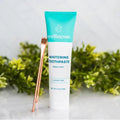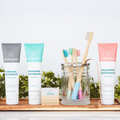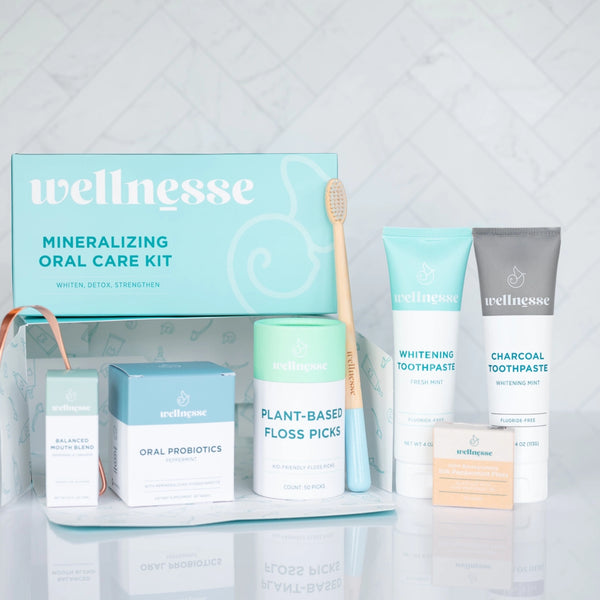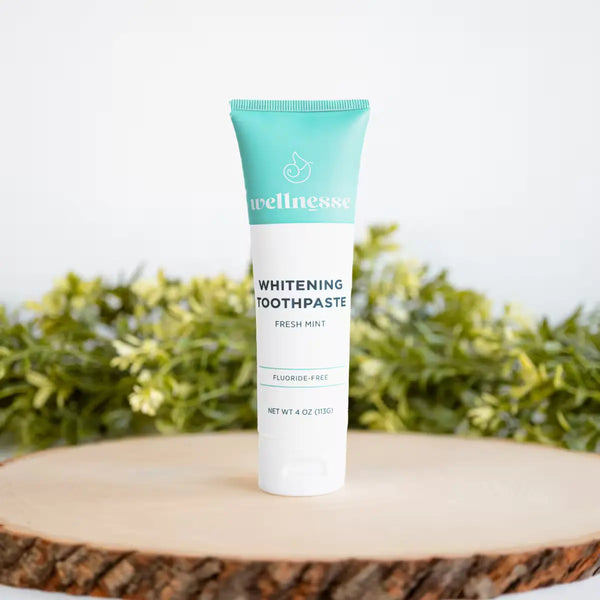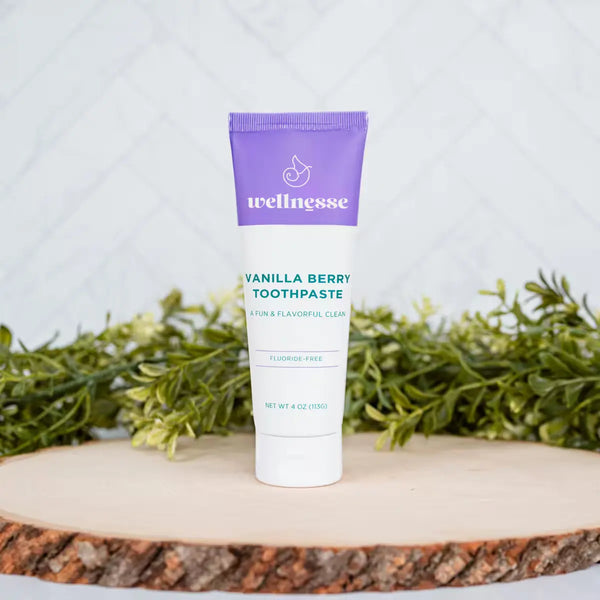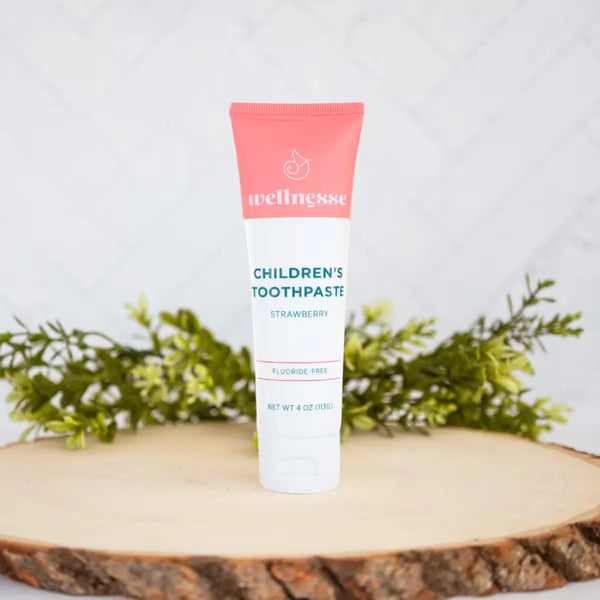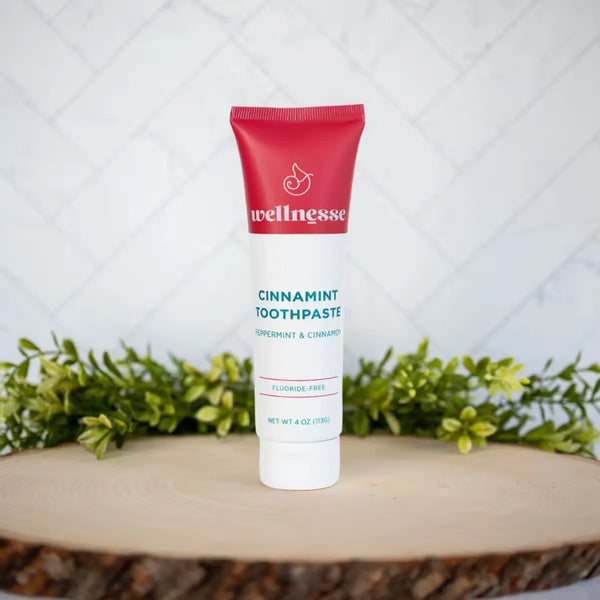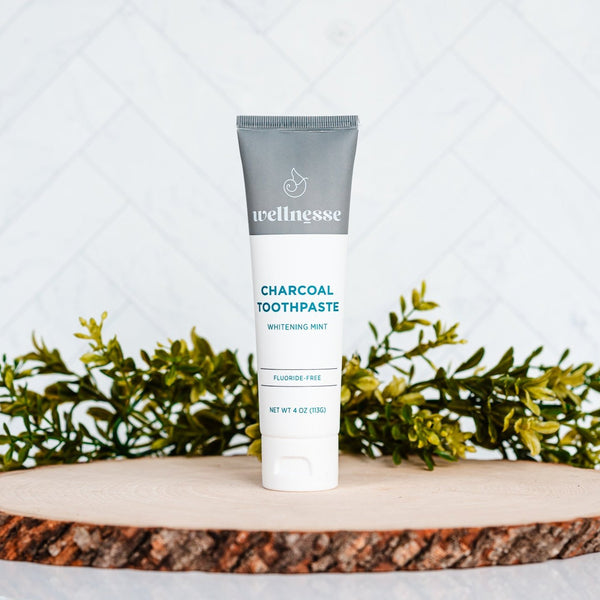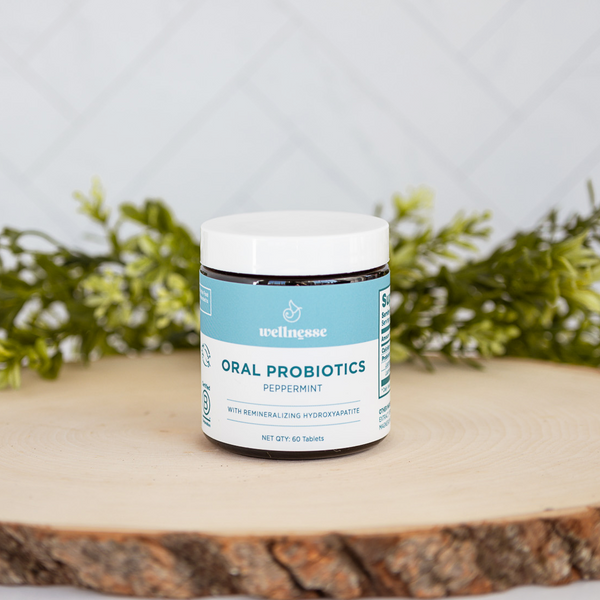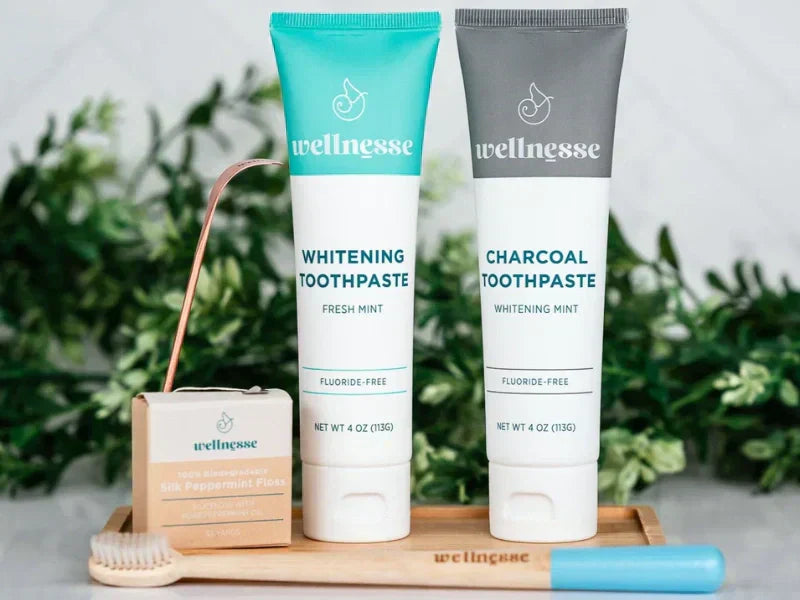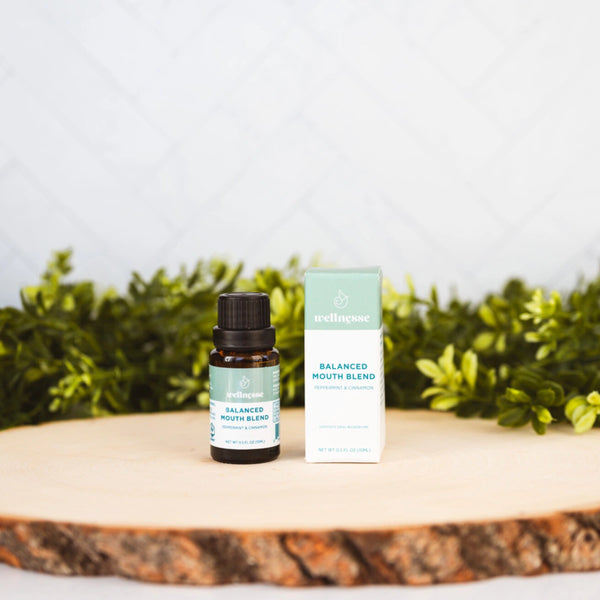A significant concern for parents making the switch is whether gentle, toxin-free formulas are effective at cleaning. The good news is, you don’t have to choose between safety and performance. Today’s non-toxic toothpaste brands use carefully selected natural ingredients that support gum health, freshen breath, and remove plaque, without relying on synthetic chemicals. From baking soda and calcium carbonate to herbal extracts and natural sweeteners, these components nourish. Modern natural formulas demonstrate that toothpaste without harsh chemicals can be just as effective as conventional ones, offering peace of mind and a clean smile. This makes them a wise choice for parents who want results and safety in one tube.

How to Identify Non-Toxic Toothpaste
Navigating the toothpaste aisle can be overwhelming, especially for families seeking safer, non-toxic options. Identifying a truly non-toxic toothpaste requires more than just looking for “natural” on the label; it means understanding the criteria that set clean, effective formulas apart from conventional products. The first and most crucial step is to review the ingredient list with a discerning eye.
Understanding Clean Formulations
Ingredients to Avoid
When choosing toothpaste for your family, knowing which ingredients to avoid is essential for both health and peace of mind. Many conventional toothpastes include compounds that are flagged by health experts as undesirable or potentially harmful, particularly for children and those with sensitivities. One of the most frequently cited concerns is the use of artificial colors, such as FD&C Blue 1, D&C Red 30, and D&C Yellow 10. These synthetic dyes are added purely for visual appeal and serve no cleaning purpose. Derived from petroleum or coal tar, they have been linked in some studies to organ system toxicity and may contribute to allergic reactions or sensitivities, especially in younger users. These compounds can accumulate in the body, raising questions about their long-term safety.
Another group of ingredients to watch for are foaming agents and detergents, notably sodium lauryl sulfate (SLS). SLS is included to create that familiar lathering effect, but it is a known irritant, particularly for those with mouth ulcers or sensitive gums. It can cause dryness, irritation, and even trigger canker sores in susceptible individuals. Some toothpastes also use diethanolamine (DEA), a foaming agent banned in certain countries due to its association with hormone disruption and potential links to cancer and organ toxicity. Polyethylene glycols (PEGs), petroleum-based compounds used for texture and stability, can be contaminated with harmful byproducts, such as 1,4-dioxane, a substance flagged for its potential carcinogenicity.
The Role of Transparent Labeling
Understanding what’s in your toothpaste shouldn’t require a chemistry degree. Many health-conscious parents now check for short, clear ingredient lists before purchasing. When a company is proud of its formula, it lists everything up front. Transparency helps shoppers make informed decisions and supports trust in the brand. A family-friendly toothpaste with a short list of recognizable ingredients is far less likely to contain unnecessary or potentially harmful compounds. The fewer the ingredients, the easier it is to identify what works and what may cause irritation.
Plant-Based Abrasives
Cleaning teeth effectively doesn’t mean scrubbing them with harsh grit. Many non-toxic formulas use plant-derived or mineral-based abrasives that are both gentle and effective. Ingredients such as hydrated silica, derived from quartz sand, and calcium carbonate, sourced from limestone or shells, are popular options. They help polish the teeth and remove plaque without damaging enamel. These mild agents are essential components of a non-abrasive dental product, making them suitable for daily use, even for sensitive teeth. Unlike synthetic microbeads, these alternatives are biodegradable and non-toxic, making them better for the environment.
Recognizing Certifications
Certifications offer reassurance that a product meets high safety and ethical standards. Look for seals from organizations like the Environmental Working Group (EWG), Leaping Bunny, or USDA Organic when selecting dental hygiene products for your home. These labels confirm that the toothpaste avoids known toxins, hasn’t been tested on animals, and meets clean ingredient criteria. Certifications reduce the guesswork, especially for busy parents. Products with these marks often undergo rigorous third-party testing. This extra layer of scrutiny ensures that your chosen toothpaste claims to be safe and meets those expectations in practice.
Exploring Natural and Family-Friendly Toothpaste Options
Sweeteners That Protect
Artificial sweeteners in mainstream toothpaste may taste good but offer no dental benefits, and some even pose long-term health concerns. Natural sweeteners like xylitol and stevia provide a smarter alternative. These plant-derived ingredients add mild sweetness without promoting decay. Xylitol has been widely studied for its ability to reduce cavity-causing bacteria. Stevia, extracted from the stevia plant, contributes to pleasant flavoring and has antibacterial properties. Both of these options support safer brushing without exposing families to questionable additives.
Safe Toothpaste for Kids
Children are especially vulnerable to chemical exposure due to their smaller body mass and still-developing systems. Gentle toothpaste for children avoids fluoride altogether and instead relies on calcium phosphate or nano-hydroxyapatite to strengthen teeth. These minerals mimic the body’s natural enamel-building blocks and provide excellent cavity protection without toxicity risks. Since young children are prone to swallowing toothpaste, using formulas free from fluoride and synthetic agents reduces the chance of accidental ingestion causing harm.
Fluoride in Non-Toxic Formulas
Though fluoride has proven dental benefits, its safety depends on how it's used. Non-toxic brands that include fluoride typically do so in small, carefully measured amounts and often label it clearly as sodium fluoride or stannous fluoride. These products provide enamel protection without overwhelming the system. When choosing the best non-toxic toothpaste, it’s essential to check the dosage, especially for children under six.

Specialty Formulas: Herbal and Whitening Toothpaste
Herbal Toothpaste Options
Such options are especially appealing to those with sensitive gums or a desire to minimize their exposure to unnecessary chemicals. Each herbal ingredient brings unique strengths to a toothpaste formula.
-
Aloe Vera: Rich in vitamins C and E, enzymes, and antioxidants, aloe vera gel helps reduce irritation and swelling in the soft tissues of the mouth. It acts as a gentle yet effective base that supports gum health without contributing to dryness or abrasiveness. Its moisturizing qualities also aid in preventing the discomfort associated with receding gums or mouth ulcers. Aloe’s antibacterial properties make it a supportive agent in controlling plaque buildup, although its primary strength lies in calming inflammation. For people undergoing dental treatments or experiencing gingivitis, an aloe-infused toothpaste can offer daily relief while promoting healing.
-
Neem Fights: Neem, often called the “toothbrush tree” in traditional Ayurvedic medicine, has long been used to maintain oral hygiene due to its powerful antibacterial and antifungal properties. The neem plant leaves and bark contain active compounds like nimbidin and azadirachtin, which inhibit the growth of harmful bacteria that contribute to cavities, plaque, and gum disease. In herbal toothpaste, neem acts as a natural cleanser that supports a balanced oral ecosystem without needing synthetic antimicrobials or harsh astringents. Unlike conventional ingredients that indiscriminately kill both good and bad bacteria, neem helps preserve beneficial flora in the mouth, making it especially valuable for long-term oral health.
-
Chamomile: In toothpaste, chamomile extract serves as an anti-inflammatory and mild antiseptic, helping to soothe gum discomfort, reduce minor swelling, and calm tissue irritation. It’s particularly effective for children or individuals prone to canker sores, mouth abrasions, or post-brushing sensitivity. Chamomile’s gentle floral flavor is also an attractive alternative to overpowering mint, making it a pleasant option for those who prefer a more subtle taste.
-
Tea Tree Oil: Derived from the leaves of the Melaleuca alternifolia plant, tea tree oil has earned a reputation in oral care for its broad-spectrum antimicrobial properties. It’s particularly effective at targeting bacteria that cause plaque buildup, gum inflammation, and halitosis. When included in toothpaste, tea tree oil helps purify the mouth and reduce the occurrence of gingivitis without resorting to alcohol or synthetic antiseptics, which can dry out the oral cavity or cause stinging. Its clean, herbal scent also contributes to fresher breath, making it a dual-purpose ingredient for hygiene and aesthetic appeal.
These botanicals work in harmony to deliver results without relying on synthetic additives. It makes them ideal for families, individuals with sensitivities, or anyone looking to align their self-care routine with nature-based principles.
Natural Whitening Toothpaste
Whitening toothpaste often gets a bad reputation for being too harsh, especially for sensitive teeth. Safe alternatives use plant enzymes and mineral powders to lift stains gently. Enzymes like papain from papaya and bromelain from pineapple break down protein debris on teeth without scratching the enamel. Combined with mild cleansers like baking soda or kaolin clay, these ingredients polish teeth over time without discomfort.
Relative Dentin Abrasion (RDA) Ratings
To ensure you're using a safe product for everyday brushing, it helps to understand Relative Dentin Abrasion (RDA) scores. These ratings indicate how abrasive a toothpaste is and whether it's suitable for long-term use. Lower RDA numbers (below 70) are considered safe for daily brushing, especially for children or individuals with enamel sensitivity. Many natural oral care formulas fall in the low-to-mid RDA range, balancing cleaning and protection. Manufacturers who value dental safety often publish RDA scores directly on their packaging. Selecting low-RDA options helps reduce erosion risk while maintaining excellent hygiene standards.
Creating a Gentle Oral Care Routine for the Whole Family
Choosing Soft-Bristled Brushes and Eco-Friendly Floss
Establishing an effective oral care routine begins with choosing tools that are both gentle on your mouth and kind to the environment. Here are key considerations:
-
Brushes With Soft Nylon or Plant-Based Bristles: Soft bristles are a cornerstone of a gentle brushing routine, helping to remove plaque effectively without damaging enamel or irritating the gums. Whether made from traditional nylon or modern plant-based materials like castor bean oil, soft bristles are ideal for individuals with oral sensitivities, including children, seniors, and those recovering from dental procedures. These brushes glide smoothly over the tooth surface, minimizing the risk of abrasion and recession, which are often caused by overly firm bristles combined with aggressive brushing. Soft-bristled brushes are also recommended by dental professionals for daily use, especially when paired with fluoride or whitening toothpaste, which can be slightly abrasive.
-
Look for Rounded Bristle Tips: Cut flat or jagged Bristles may create microscopic abrasions on delicate gum tissue, leading to inflammation, bleeding, or increased sensitivity over time. Rounded bristle tips offer a safer, more ergonomic brushing experience. These tips gently massage the gums while sweeping away debris, supporting gum health, and reducing the risk of gum recession. Many premium toothbrushes, including both manual and electric models, specifically advertise rounded bristle designs to distinguish themselves from lower-quality counterparts.
-
Use Floss Made From Natural Fibers: Traditional floss is often made from petroleum-based nylon, non-biodegradable, and typically coated with synthetic waxes or chemical additives. In contrast, natural fiber floss provides an eco-friendly alternative that still performs effectively in cleaning between teeth. These natural options glide well between tight contacts and are often infused with plant-based waxes like candelilla, which add smoothness without using artificial chemicals. Some also feature essential oils or xylitol for added freshness and cavity protection. Beyond environmental benefits, natural flosses are often less irritating to gums, particularly for people with sensitivities to synthetic coatings.
-
Free From Synthetic Waxes or Fluorinated Coatings: Some commercial flosses contain coatings like PTFE (commonly known by brand names such as Teflon) to create an ultra-slick texture. While these coatings do reduce resistance between teeth, they often come with health and environmental concerns, particularly regarding fluorinated chemicals that don’t easily degrade and may pose long-term exposure risks. Look for flosses coated with natural alternatives such as jojoba, coconut, or beeswax. These ingredients allow smooth gliding while supporting gum health and maintaining a non-toxic profile. Removing synthetic coatings from your oral routine is a simple step toward a safer, cleaner approach to dental care.
Creating an oral hygiene toolkit that's gentle on the mouth and kind to the planet doesn't require a complete overhaul. It's just thoughtful swaps that make a lasting difference.
Teaching Brushing Techniques
Proper technique matters as much as the tools you use. Young children often mimic adults, so demonstrating correct brushing motions helps instill good habits early. Small circular motions along the gumline are more effective than harsh scrubbing. For infants and toddlers, use just a smear of toothpaste the size of a grain of rice. Children over three can use a pea-sized amount. This cautious approach helps avoid overexposure to active ingredients. Many fluoride-free natural toothpaste brands provide dosing guides right on the packaging.
Mouth Rinses and Gum Care
Toddlers may not always brush effectively, so adding mild rinses and gum wipes can help cover the gaps. Natural mouthwashes made with herbal ingredients like sage or calendula provide gentle cleansing and help soothe developing tissues. For children too young to rinse, gum wipes made with aloe or xylitol can help remove food particles and balance oral pH. These additions are beneficial after meals or snacks. Selecting natural toothpaste for families and pairing it with complementary products ensures a complete, nurturing oral routine. It supports children transitioning from assisted to independent care while reinforcing positive health habits. Some kids may react to essential oils or specific plant extracts in toothpaste, so checking for allergies is essential. Also, toothpaste texture can influence children's willingness to brush. Trial and error, guided by your child’s comfort, is often the best approach. Consulting a pediatric dentist can also clarify formulation safety and personalized product suggestions. Clean toothpaste ingredients will usually highlight potential allergens clearly.

Making informed choices about what goes into your family's mouth reflects your overall lifestyle. Opting for toxin-free toothpaste shows a commitment to safety, wellness, and mindfulness in daily routines. With so many brands focusing on integrity and clean formulas, families no longer have to settle for compromises. These products are designed with real needs, blending adequate cleaning power with carefully chosen ingredients. Non-toxic toothpaste allows you to support well-being while staying true to what matters most.
